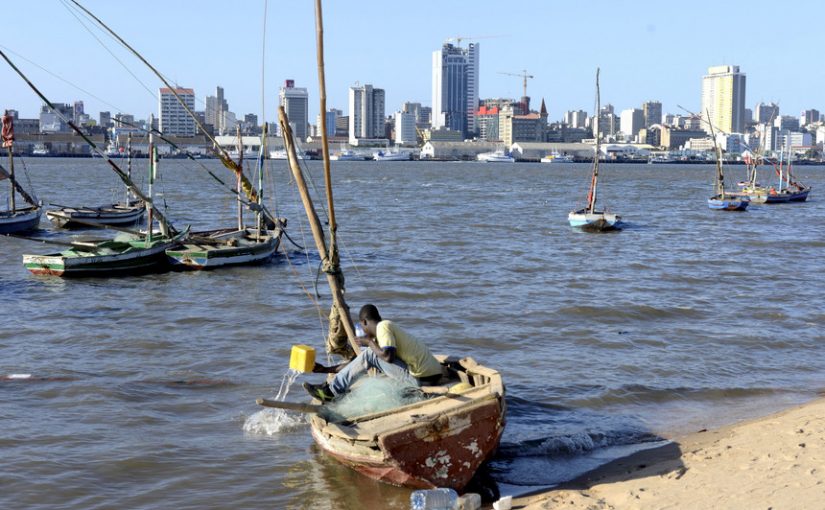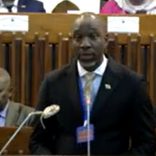Mozambique: Newly announced toll rates leave out light vehicles, trucks and the Moamba Toll - Carta
Mozambique: Debt guarantee confirmed – Hanlon

Reuters (File photo) / A view of Maputo
Prime Minister Carlos Agostinho do Rosario yesterday (Thursday 4 May) confirmed the government guarantees of the debts to Proindicus and MAM (Mozambique Asset Management).
But speaking on the second day of a question and answer session between the government and parliament, Rosario insisted that the primary responsibility for the debts lies with the two companies, and not with the government, which is merely the guarantor. It was up to Proindicus and MAM to renegotiate with their creditors, and to do all in their power to restructure their business so that they can comply with their debt servicing obligations.
Proindicus, MAM and Ematum are three private companies owned by the state and controlled by the security services. They took on $2 bn in debt in 2013-4, with state guarantees that were both illegal and unconstitutional.
Bonds issued for Ematum were converted into government bonds in 2016. But syndicated loans for Proindicus and MAM are still considered debts by private companies. “Conversion or not into sovereign debt will follow the norms included in the respective contracts after the possibilities of payment by the companies have been exhausted and in conformity with what may be determined by the Attorney-General’s Office”, said Rosario. (AIM En 4 May)
But the contracts include government guarantees which Rosario has accepted. And the companies seem to have little chance of repaying.
Meanwhile Zitamar (27 Apr) quotes Isalcio Mahanjane, who it says is a Frelimo member and lawyer to the family of former president Armando Guebuza, to say that although the parliamentary commission found the guarantees to be illegal, it also found the money was spent on defence and therefore should be repaid. “We have to look to the goal of the debts. … If they were for private use there would be no way to take them as public debts. [But] we have been hearing that those debts were used to upgrade the defence system. I think that is clear. If the state couldn’t assume it as a public debt, it would mean we would have to give back all the military equipment we have got from the debts.” Thus he believed the debts should be repaid.
Prime Minister Carlos Agostinho do Rosario today (Thursday 4 May) confirmed the government guarantees of the debts to Proindicus and MAM (Mozambique Asset Management).
But speaking on the second day of a question and answer session between the government and parliament, Rosario insisted that the primary responsibility for the debts lies with the two companies, and not with the government, which is merely the guarantor. It was up to Proindicus and MAM to renegotiate with their creditors, and to do all in their power to restructure their business so that they can comply with their debt servicing obligations.
Proindicus, MAM and Ematum are three private companies owned by the state and controlled by the security services. They took on $2 bn in debt in 2013-4, with state guarantees that were both illegal and unconstitutional.
Bonds issued for Ematum were converted into government bonds in 2016. But syndicated loans for Proindicus and MAM are still considered debts by private companies. “Conversion or not into sovereign debt will follow the norms included in the respective contracts after the possibilities of payment by the companies have been exhausted and in conformity with what may be determined by the Attorney-General’s Office”, said Rosario. (AIM En 4 May)
But the contracts include government guarantees which Rosario has accepted. And the companies seem to have little chance of repaying.
Meanwhile Zitamar (27 Apr) quotes Isalcio Mahanjane, who it says is a Frelimo member and lawyer to the family of former president Armando Guebuza, to say that although the parliamentary commission found the guarantees to be illegal, it also found the money was spent on defence and therefore should be repaid. “We have to look to the goal of the debts. … If they were for private use there would be no way to take them as public debts. [But] we have been hearing that those debts were used to upgrade the defence system. I think that is clear. If the state couldn’t assume it as a public debt, it would mean we would have to give back all the military equipment we have got from the debts.” Thus he believed the debts should be repaid.













Leave a Reply
Be the First to Comment!
You must be logged in to post a comment.
You must be logged in to post a comment.